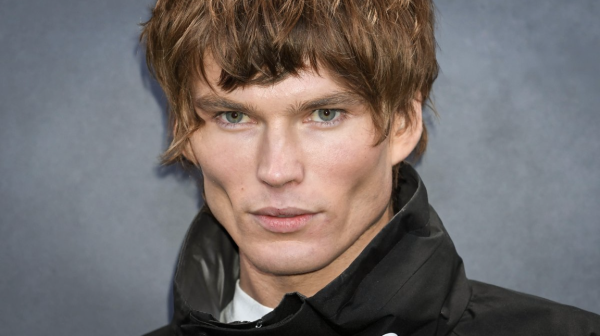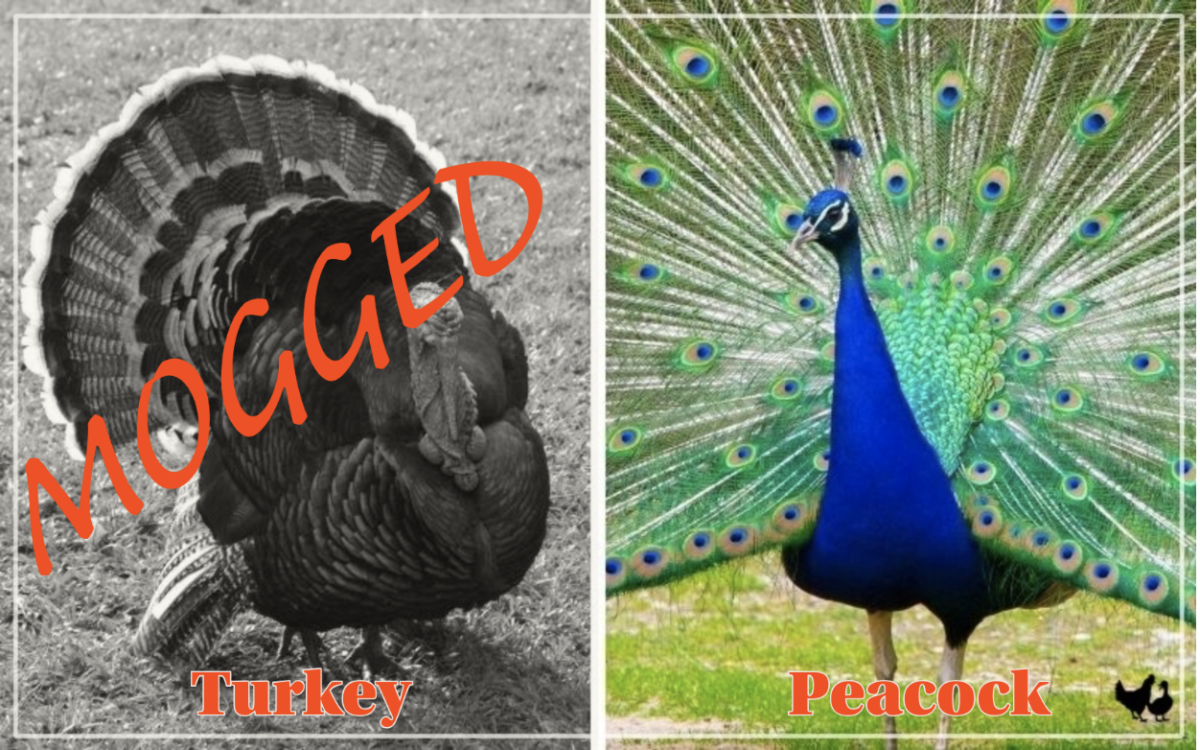If you came to school in tattered, grimy clothing that stank like a public toilet and was stained worse than Victorian mahogany wainscoting, do you think people would look at you the same? You could, of course, accept your appearance for what it is. After all, acceptance is the last stage of grief, right? Or, you could look better. As Michael Jordan said, “I can accept failure. Everyone fails at something. But I cannot accept not trying.” So look in the mirror. Will you resign to what you see or do you choose to Keep. On. Trying.
Ever since Charles Darwin proposed the concept of natural selection, a scientific basis for the visual economy you’ve been sensing all your life has existed. Peacocks, for example, are surprisingly athletic birds—they can run, jump, and even climb—but what about flying? Well, they decided to attach an outrageously large folding fan of feathers to their tail and therefore inhibited themselves from flying farther than a few feet at a time. And they’re not the only animal to sabotage their best ability for the sake of style. A stick bug genuinely chose to make itself entirely resemble a stick just so birds wouldn’t see it as easily. As you can imagine, becoming a stick doesn’t bode well for rapid movement. And yet, these adaptations have been proven successful by the evolutionary hands of fate. Sacrificing everything for appearances has paid off again and again in nature. So why can’t it be that way for humans, too?
Even though the sterile halls and familiar friend groups of our school feel like a far cry from the natural world ruled by Darwinian laws, the importance of appearances is all too similar. If you take the beginning of freshman year, for example, you probably remember those first few days out on the battlefield in new classes filled with twenty-seven faces you had never seen before (and were undoubtedly judging, even if it was subconscious), interspersed between brief moments in the bunker (the loosely developing circle with the four people at Mitty you did know beforehand). As Maya Angelou articulated, “People will forget what you said, people will forget what you did, but people will never forget how you made them feel.” Your physical appearance is the language that speaks before you do. Therefore, both then and now, appearances play a deep role in what people remember. But, with certainty, I say, that is a very good thing.
And that is because appearances can be changed. If you struggle to find people who hold your sense of humor, for example, you can just get a better haircut and some cleaner fits and then have a good laugh at them because, guess what—they just got mogged. If you’re struggling in school, why not try mogging the test?
I mean seriously, is your teacher really going to be able to hand you a C if you’re staring into their soul like this? 
Or maybe you’re just searching to be loved and seen. Well, people will indeed look at you more if you’re more of something to be looked at. “But I meant seen as in understood and cared for, not literally looked at,” you protest. And to you I say, do you know what happens when you put a single crab into a bowl? It climbs out with ease. But what if you add ten more crabs? They will all grab onto each other in an attempt to climb up, and nobody escapes. We like to believe people genuinely care; but come on, in a world where everyone’s scrambling to get ahead, the truth is lying in plain sight. You are told that you want connection and self-love because they know that if you chase it, you’ll only slow down your winter arc while theirs grows colder and stronger. Because they want to mog you. Because they want to ascend into the ultimate chad.
You are alone in this world; we are no different from the peacock or the crab. Do you think a peacock mogged a turkey by finding genuine self-fulfillment? Instead of trying to grow into an intellectual and compassionate society, we must resort to the raw brutalism of nature. Sure, it might bring happiness to absolutely no one, but that’s the real blessing. After all, joy just gets in the way of our ascension.


